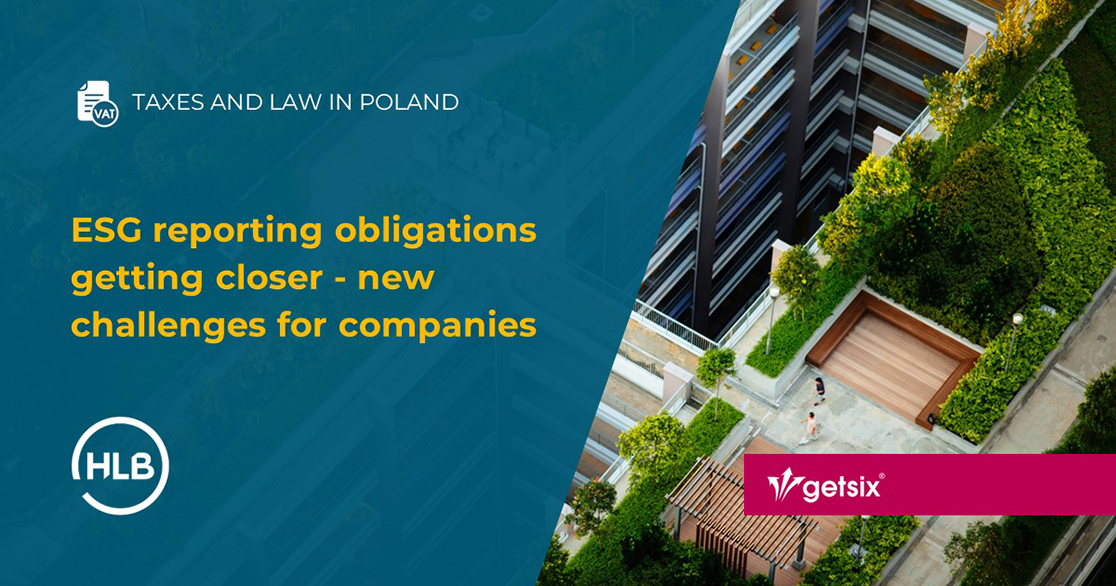ESG reporting obligations getting closer – new challenges for companies
21 May 2024
21 May 2024

Today, sustainability and corporate responsibility are becoming increasingly important, and companies must look beyond traditional measures of success such as profit. More and more attention is being paid on the impact that companies have on the environment, society, and corporate governance – ESG (Environmental, Social, and Governance).
In December 2022, the European Union took a significant step towards more sustainable business with the adoption of the Corporate Sustainability Reporting Directive (CSRD). This directive aims to systematize and detail the non-financial information that companies will be required to publish annually. The CSRD is intended to replace the current Non-Financial Reporting Directive (NFRD).
In July 2023, the European Commission took an important step by adopting the European Sustainability Reporting Standards (ESRS). This set of guidelines establishes the official reporting rules for ESG, applicable to all companies covered by the CSRD directive.
In 2024, companies must begin collecting data to be able to report ESG issues to their stakeholders in accordance with the new guidelines. By 2029, all EU regulated companies will be directly subject to this obligation.
For all companies subject to the CSRD directive, the adoption of ESRS means:
Ultimately, the requirements of the CSRD Directive will have to be met by:
Subsidiaries will not have to publish sustainability reports if they are included in the consolidated management report of the parent company which complies with CSRD or ESRS requirements, or another equivalent standard. Large listed companies will not be covered by this exemption.
The ESG reporting obligation will be introduced gradually over the next few years, according to the following schedule:
From 2024:
The reporting obligation will apply to companies and capital groups that were previously required to report in accordance with the NFRD directive. This includes the largest public interest entities, companies employing over 500 people, and those meeting specific financial criteria (balance sheet total over 20,000,000.00 EUR and/or annual revenues over 40,000,000.00 EUR). The first ESG reports in accordance with ESRS standards will be submitted by these entities in 2025.
From 2025:
The reporting obligation will apply to all large companies that meet at least two of the following three criteria: over 250 employees, balance sheet total over 25,000,000.00 EUR, annual revenues over 50,000,000.00 EUR. These entities will submit their first ESG reports in accordance with ESRS standards in 2026.
From 2026:
The reporting obligation will apply to small and medium-sized enterprises listed on the regulated market that meet at least two of the following three criteria: over 10 employees, balance sheet total over 350,000.00 EUR, annual revenue above 700,000.00 EUR.
From 2027:
The reporting obligation will apply to selected companies based outside the EU with a subsidiary or branch in Poland which achieve annual revenues over 150,000,000.00 EUR in the EU. These entities will submit their first ESG reports in accordance with ESRS standards in 2028.
The current ESG reporting regulations consist of 12 ESRS documents, with the first two define cross-cutting ESG standards mandatory for all entities required to report:
In addition to these cross-cutting standards, ESRS includes three thematic groups of detailed standards that cover specific areas of sustainability:
Environment:
Society:
Corporate Governance:
It is important to emphasize that the shape and scope of ESRS will be subject to periodic verification and changes, which may lead to further expansion in practice.
ESG is not only a set of new obligations for companies, but a key element of development strategy in the 21st century. For businesses, this means an opportunity to build a competitive advantage, increase risk resilience, and create a more sustainable future.
The CSRD is a significant step towards more transparent and accountable business practices in Europe. Companies that want to succeed in the future success must take ESG reporting seriously and adapt to the new guidelines.
It is worth starting preparations now, because if companies will have to report ESG in accordance with the CSRD directive in the future, it is necessary to determine the scope of their reporting and collect the necessary data in advance.
If you have any further questions or require additional information, please contact your business relationship person or use the enquiry form on the HLB Poland website.
***
Download the brochures providing general information and outlining the services that are offered by HLB member firms.
Learn moreClick below for more detailed information regarding population, major towns and cities, language, religion and holidays in Poland.
Learn more